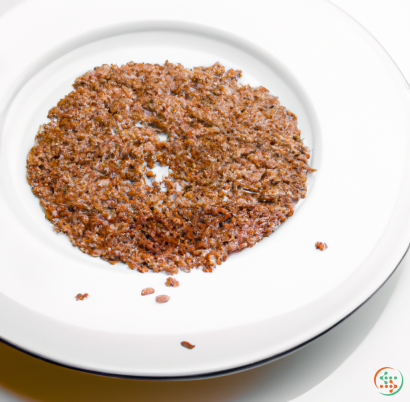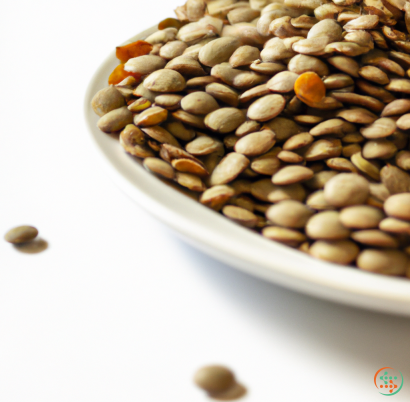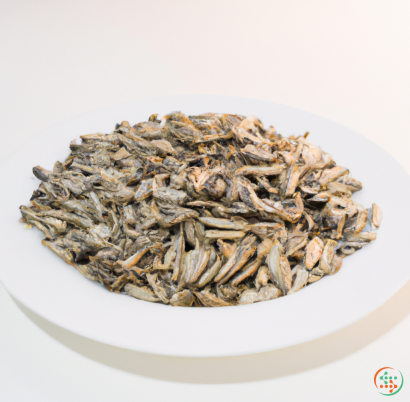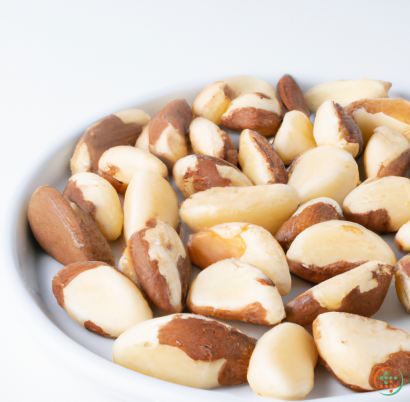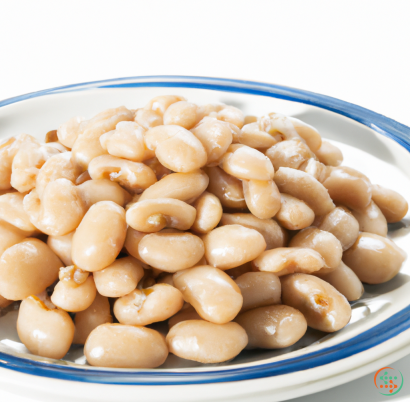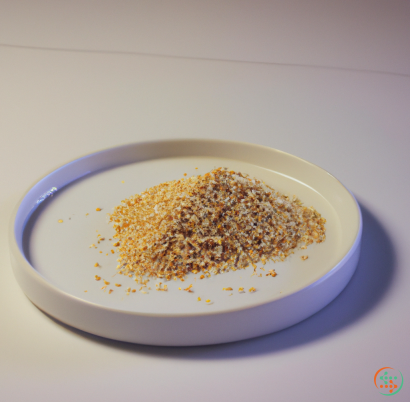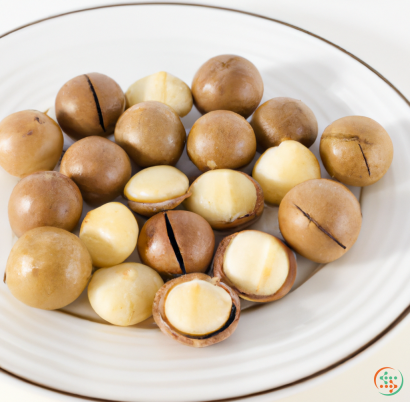Papayas
Papayas, a tropical fruit native to Central and South America, are among the most popular and delicious fruits consumed around the world. They are most often eaten fresh, but can also be used in a variety of recipes and dishes. Papayas are full of essential nutritional compounds, vitamins and minerals, making them an incredibly nutritious and delicious addition to any diet.
A papaya is commonly referred to as a ‘tree melon’ due to its appearance – having a large smooth round shape with a yellow to orange skin, mostly hollow center and white flesh inside. Papayas have a sweet taste to them and can range in size from 6-20 inches in length. The fruit can be enjoyed in its ripe form or even unripe. The list of health benefits associated with papayas is very long and include aiding digestion, high fiber content, preventing cancer, and promoting heart health.
The inside of a papaya is an amazing sight to behold; it is filled with tiny seeds that are surrounded by a juicy reddish-pink flesh. This fruit is incredibly versatile when cooking, and can be used in sweet dishes or savory dishes. It can be chopped, sliced, or pureed into a sauce and can also be juiced for a delicious and healthy snack. Papayas are also a great addition to smoothies, salads, salsas, and even desserts!
In terms of nutritional content, papayas are a good source of vitamins A and C, dietary fiber, and potassium. And all these nutrients can help to keep your body in tip top shape. Eating papayas also helps to give your immune system a boost and can help protect your cells against damage. Papayas also contain a small amount of omega-3 fatty acids, which are known to be beneficial to your overall health.
In terms of harvesting and storage, papayas begin ripening after they are picked and should be eaten fresh. As a rule, unripe papayas should not be eaten as they can be quite bitter and hard in texture. To store papayas, it is best to keep them wrapped in plastic in a cool, dry place. When ripe, it can be stored in the refrigerator and should remain there until consumed.
Papayas can be enjoyed in a variety of ways; they make a great addition to salads, they can be used in a variety of recipes, or simply eaten on their own. The sweet and delicate taste of papayas can make any meal or snack more enjoyable, and their health benefits make them a great addition to any diet. The key to enjoying papayas is to make sure they are ripe and ready to eat. Once you have found your perfect papaya, all you have to do is enjoy them!
Have you ever fantasized about a delectable papaya piece on your plate for dinner? Papayas have a unique taste and texture; the combination of their sweet and juicy flavour, along with their smooth custardy texture, makes them extremely prodigal. Exotic papayas have been a favourite of many for years, but have you ever stopped to consider what it really takes to get a fresh papaya, full of its tantalizing sweet flavours, from its natural habitat onto your plate?
It’s a journey full of care, knowledge and commitment that ensures the quality of your papaya. From the farmers working in the fields to the transportation, their efforts contribute towards the quality of the fruit arriving at the grocery store or your doorstep. In this post, we will discuss the entire journey of a papaya piece, from its inception to your plate.
Going back to its origin, papayas are the product of a flowering tree, endemic to tropical and subtropical regions, such as Central America and India. Every part of the papaya tree has its purpose; the fruit itself is often used for food, the leaves for medicine, and the seeds for oil. Therefore, the papaya tree is also known as the “tree of life”.
Papayas are grown either through seeds or through stem cuttings, which are pieces of a stem that is cut off and grafted onto a new tree. Like most plants, they require favourable and consistent growing conditions to reach optimal yield, such as moist and fertile soil, regular and plentiful amounts of water, protection from pests and disease, and warm temperatures.
With ideal growing conditions and proper care, it takes about 3-6 months for a papaya tree to produce its first crop. Replanting the tree with higher quality and disease resistant varieties is a common practice in papaya production, as is pruning to keep the tree of a decent shape for growth and harvest. Pruning reduces papaya tree’s shade and increases production.
Once the papayas are ripe, the papaya farmers begin hand harvesting which is done by cutting the papaya off of the tree by using a machete or similar tool. This process is known as “picking”, and since papaya trees bear only one to two fruits per bunch, it is a very tedious process that requires patience. After the papayas are picked, they are packed in cases, baskets or bags and sent off to the local market or a pack house.
At the pack house, the papayas are washed and sanitized before they are graded according to size, shape, sweetness and colour. The papayas that meet the required standards are packed into cartons or boxes and sent off to the grocery stores, restaurants and markets. For markets abroad, papaya farmers must meet the international standards for food safety, which includes a variety of tests such as color tests, size tests, microbial tests and fiber content tests. The papayas that pass these tests are allowed to travel abroad to other countries.
Once the papayas have been approved for export, they are loaded onto freight ships or airplanes and transported to the destination country. Depending on the size of the shipment and the distance to be covered, the time for delivery can range from several days to a few weeks. During transit, it is important for the papayas to be kept at optimum environment conditions like proper temperature, humidity and ventilation to prevent spoilage.
Upon arrival in the destination country, the papayas are inspected and cleared by customs. After clearing the customs, they are delivered to the supermarkets, restaurants or retail stores. Papayas are usually distributed in cardboard or plastic trays and sold fresh, or sometimes pre-cut. Papayas that do not meet the required standards are sent to the processing units, where they are chopped and mashed into various products like concentrates, purees and juices.
Once the papayas have been purchased, it is up to the buyer to ensure that they are handled properly for optimum shelf-life. After purchase, keep them refrigerated until consumed and make sure to discard any spoiled pieces to avoid food poisoning. Papayas are best enjoyed fresh, and once you have them ready to eat, you can get creative with their use.
Whether you choose to eat them raw, or incorporate them into quiches, pies, custards or salads, you will be enjoying a delicious treat that took hard work and optimum cultivation techniques to make it onto your dinner plate. After all, what is better than being rewarded with a well-deserved piece of heaven for your dinner efforts?
| Vitamin A | 0.047 mg | |
| Beta-Carotene | 0.274 mg | |
| Alpha-Carotene | 0.002 mg | |
| Vitamin E | 0.3 mg | |
| Vitamin K | 0.0026 mg | |
| Vitamin C | 0.0609 grams | |
| Vitamin B1 | 0.02 mg | |
| Vitamin B2 | 0.03 mg | |
| Vitamin B3 | 0.36 mg | |
| Vitamin B4 | 0.0061 grams | |
| Vitamin B5 | 0.19 mg | |
| Vitamin B6 | 0.04 mg | |
| Vitamin B9 | 0.037 mg |
| Calcium | 0.02 grams |
Daily Value 1.3 g
|
| Iron | 0.25 mg |
Daily Value 0.018 g
|
| Magnesium | 0.021 grams |
Daily Value 0.4 g
|
| Phosphorus | 0.01 grams |
Daily Value 1.25 g
|
| Potassium | 0.182 grams |
Daily Value 4.7 g
|
| Sodium | 0.008 grams |
Daily Value 2.3 g
|
| Zinc | 0.08 mg |
Daily Value 0.011 g
|
| Copper | 0.05 mg |
Daily Value 0.9 mg
|
| Manganese | 0.04 mg |
Daily Value 0.0023 g
|
| Selenium | 0.6 ug |
Daily Value 0.055 mg
|
| Tryptophan | 0.008 grams | |
| Threonine | 0.011 grams | |
| Isoleucine | 0.008 grams | |
| Leucine | 0.016 grams | |
| Lysine | 0.025 grams | |
| Methionine | 0.002 grams | |
| Phenylalanine | 0.009 grams | |
| Tyrosine | 0.005 grams | |
| Valine | 0.01 grams | |
| Arginine | 0.01 grams | |
| Histidine | 0.005 grams | |
| Alanine | 0.014 grams | |
| Aspartic Acid | 0.049 grams | |
| Glutamic Acid | 0.033 grams | |
| Glycine | 0.018 grams | |
| Proline | 0.01 grams | |
| Serine | 0.015 grams |
| Glucose | 4.09 grams |
|
| Fructose | 3.73 grams |
|
| Total Sugars | 0.131141 grams |
per 100g
|
| Myristic acid (14:0) | 0.01 grams |
|
| Palmitic acid (16:0) | 0.06 grams |
|
| Total Saturated fatty acids: | 0.07 g | |
| Oleic acid (18:1) | 0.03 grams |
|
| Palmitoleic acid (16:1) | 0.04 grams |
|
| Total Monounsaturated fatty acids: | 0.07 g | |
| Linolenic acid (18:3) | 0.05 grams |
|
| Linoleic acid (18:2) | 0.01 grams |
|
| Total Polyunsaturated fatty acids: | 0.06 g | |

